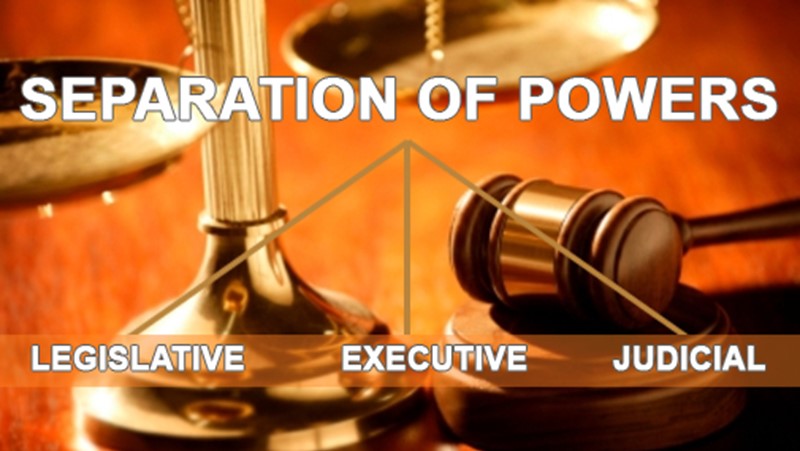
Dr. Howard Fergus is an academic whose works have gained much acclaim throughout the Commonwealth and also within his homeland, Montserrat. A historian and author, some of Dr Fergus' works include accounts about the life and times of Montserrat's first Chief Minister, William H. Bramble, and some of the men and women who stood in concert with him. I feel very proud and honoured of the work W. H. Bramble and others did, fighting for the honour of all Montserratians so that this year, 2012, the island can be celebrating 60 years of Montserrat's citizens having the right to vote; or what we commonly refer to as universal suffrage.
As I think of what the 60th anniversary of universal suffrage means for Montserrat, I would dare to speculate that W. H. Bramble fought for more than the singular achievement of voting rights for all of Montserrat's sons and daughters. I believe also that the great man and his charges also fought to ensure that Montserrat would one day have a bright future, with generations who have the right to participate in the political process in whatever manner they may so choose, and build a democracy based upon solid principles.
As a keen observer of leadership in various areas of endeavour, I hold a view that great leaders, especially political ones, are defined by history, based upon some great act or feat of accomplishment that can be squarely rooted in the leadership qualities that they displayed. Think of it. Churchill, Roosevelt, Dr Eric Williams, Manley, VC Bird Senior, WH Bramble and others of such ilk are known for great feats that transformed their societies and in some instances, the wider world.
But what will make Montserrat even greater than it is at this stage in the island's development? What will make the island one that continues to advance on a path that secures the well being of all citizens? What will ensure that the youths of Montserrat's future are best positioned to achieve economic success, social order and advancement, guided by astute political representation?
Montserrat operates within the ideologies of Western democratic processes. One of the key elements of Western democratic practices is the separation of powers within the state. The United States political set up and the Westminster system of governments, being the two most prominent examples.
The separation of powers should so ensure that the judicial, legislative and executive branches operate within an atmosphere of checks and balances. Political thinkers within the Western system of government are aware that no branch of government has the power to do everything. The independent exercising of each branch's powers is essential to successful democratic government.
In a paper entitled "The Separation of Powers and Democratic Renewal" by Mark E. Warren and Hilary Pearse from the Department of Political Science at the University of British Columbia, the authors outline clearly why the judicial process should not be interfered with. They state, "The judiciary should be differentiated from the legislatures for two reasons. First, because the judiciary has access, in principle, to administrative power, the judiciary must be separated from the legislature and prevented from programming itself ' that is, it must borrow its authority from legislatures. Second, because the judiciary is concerned with application of law rather than with the making of law, its discourse is distinct from the less bounded discourse of legislatures, which in turn preserves distinctly legal justifications of decisions, and, with this, the rule of law."
The judiciary, legislature and the executive all have their distinct functions and the argument that persists within modern democratic governments is: How does one ensure checks and balances allow no overstepping of boundaries across the various bodies?
In light of this, I want us to consider two questions with specific reference to some recent developments on Montserrat:
' Should politicians have the power, without consequence, to cross barriers and intervene in a judicial process, and claim that it was at the behest of the sitting Magistrate?
' Can an officer of the court cross boundaries and solicit a member of the legislature to take responsibility for a matter that sits before the court without considering that this may be a breach of the separation of powers principle?
Within a society that bounds itself on the ideals of fairness and compliance to the separation of powers, did the Honourable Minister and the Magistrate in the recent abuse issue on the island, infringe on the independence of the court in this matter? The court must be seen to be operating independently, thus, an elected official's ministerial presence in a matter before the court can be considered at best to be a gross misuse of power. That is an error of judgement, of magnitude. One that is yet to be explained to the electorate who gave that Minister the power they sought to use in their ultimate decision to allegedly act on the Magistrate's advice.
Sympathisers and apologists alike for the Minister's actions seem to agree that all is well and the actions were justified. Taking into account the overall advancement of the human condition within developing societies, I find it disturbing that more people are not actually appalled at the explanation given by the Honourable gentleman in seeking to justify his actions.
Who protects the electorate from those who believe they can operate with impunity? What protections are there from certain factions of an electorate who excuse ministers' unacceptable behaviour?
Perhaps now as we mark 60 years of voting rights being extended to all, there is a need for a new social awakening within our consciences, and a new level of political engagement brought to bare. Such engagement does not have to be viewed through the prism of working against anyone, or any government. It is 60 years since we have been managing our own political affairs- well at least to an extent - and at this juncture our thinking ought to elevate beyond viewing opposing opinions as personal. In Montserrat, political engagement does not always have to assume the mantle of yesteryear's backyard politics. These matters are too important to squabble over and ignore the key points.
As President Bill Clinton said in his speech in support of President Obama last Wednesday evening, "Government and society work best through cooperation."
W. H. Bramble, Bob Griffith and others fought for something honourable 60 years ago. We salute these men and women for their vigour and vision. Today, voting rights are not in question within Montserrat, but the lines separating the various wings of the island's democracy were recently crossed.
Unchecked display of power between legislators and judicial officers; blurring the dividing lines, ought to be discussed openly and explained further. The explanations given so far have ignored the key principles surrounding the separation of powers.
Jeevan Robinson is Founder & Editor-in-Chief of MNI Alive, a global Caribbean marketing, news and information (MNI) media house. He can be contacted at jeevan@mnialive.com.


